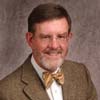 By Gordon D. Newby
By Gordon D. Newby
Around the world, many varied voices are clamoring to control the public discourse about the future, and the past, of Islam. With more Muslims everywhere on the internet, Facebook, blogs, and Twitter, radicalized individuals and groups are jumping into this hotly contested space, pushing agendas that span the political and theological spectrum.
Most Muslims live their Islamic lives as private and living faith, which can be said about religious individuals everywhere. Religion is, as the late W.C. Smith contended, the living, vital faith of individual persons rather than an abstract set of ideas and doctrines. But, the abstract ideas and doctrines are a key part of the public discourse about Islam, and they affect how Muslims see themselves and how outsiders understand Muslims and Islam.
This dynamic tension between individual devotion and the public scene seems louder and more frenetic now in the context of modernism, geo-politics, and worldwide economics, but it is a pattern that has been with Islam from the beginning. Islamic denominationalism, the division of Muslims into Sunni, Shi'i, Khariji, and Sufi, to name a few, has historically had claimants asserting that their group represents the "true" Islam. Even within the larger groups of Sunni and Shi'i there are and have been strong divisions on the basis of belief, practice, or regional identity. The often asked question, "Who speaks for Islam?" remains an enduring and important question. The shifting response is determining where Muslims and non-Muslims alike stand across the many divides in today's world.
Since 9/11, many in the United States have seen Islam as a monolithic threat and as a repressive, archaic religion, out of tune with the modern world, a religion needing reform. This convenient reduction of about a quarter of the world's population to a single category goes against both historical and present day facts. As mentioned above, Islam is far from a single group with identical ideas and practices, but radical actors and Islamic opponents alike promote the unitary view that all Muslims are alike. For groups like Al Qaeda, the hope is to rally all, or many, Muslims around the central idea of opposition to the non-Muslim "West," a message of a kind of fundamentalism that opposes European and American domination of world politics and the world economy. This has helped those in America and Europe whose political fortunes have been advanced by promoting fear of Islam as the enemy of "Western Civilization." But, behind these attention-grabbing headlines, Muslims everywhere are transforming their religious outlooks and practices to fit the modern world.
As we look around, we see that even those who oppose modernist ideas as Western corruptions are fully modern in their techniques. As far back as 1992, Professor Bruce Lawrence of Duke University showed in his Defenders of God that so-called fundamentalists in Islam, Judaism, and Christianity, who are supposed to reject all things modern, use the tools of the modern age to resist the modern age. In a recent example, the group in Yemen known as Al Qaeda of the Arabian Peninsula has started a glossy magazine titled Inspire, written in jazzy English, and with an online presence, apparently to attract young English-speaking Muslims to the group's oppositional views. Even the Taliban, who regard the internet as "unholy," have maintained an unofficial website to condemn their enemies. For mainstream Muslims, blogs, Twitter, Facebook, and iPhone apps are now standard religious tools across the religious and political spectrum. Need to know when to pray and in which direction? There is an app for that. Want to know where to find halal food? There are many blogs for that with smartphone maps to take you there. Want to hear sermons from Mecca or Kuala Lampur? They are available on the internet.
In the last two decades, America has become a world center for Muslims reforming and reimagining Islam. While Muslims have been in America since the 18th century, recent immigration of South Asian and Middle Eastern Muslims have combined with American converts to make Islam the fastest growing religion in the U.S., according to some estimates. American Muslims are more assimilated into U.S. society than are European Muslims because of our traditions of religious freedom. Conversion into and out of Islam means that it is hard to tell if someone from the Middle East or South Asia is Muslim, Baptist, Hindu, or secular, with no religious affiliation. American Muslims regularly dominate conferences on reforming Islam and their effects can be seen in such movements as the Progressive Muslim Union in the United States and the Muslim Canadian Congress in Canada. Often the discussions bring issues of human rights, healthcare, poverty, and hunger together with core Islamic values.




